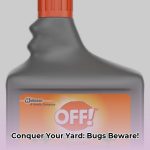Debunking the Sewage Smell Myth
That nasty odor coming from your dishwasher might have you thinking about a backed-up sewer line, but hold on! It’s highly unlikely raw sewage is the culprit. More likely, it’s the result of ordinary food debris and stagnant water creating a less-than-pleasant environment inside your dishwasher. Think of it as an unintentional compost bin brewing inside your appliance – definitely not the fresh, clean scent you’re aiming for.
Common Culprits: Pinpointing the Source of the Smell
Several factors can contribute to a smelly dishwasher. The most frequent offender? Trapped food particles. These leftover bits of dinner can get lodged in various places, from the filter to the spray arms, creating a feast for odor-causing bacteria. Grease and oils can also cling to these food particles, compounding the problem.
Beyond food debris, other potential issues include:
- Clogged Drain: Just like a clogged kitchen sink, a clogged dishwasher drain traps dirty water, leading to stagnant pools that harbor odor-causing bacteria.
- Neglected Garbage Disposal: If your dishwasher shares a drain with your garbage disposal, food particles lingering in the disposal can create a stink that wafts back up into the dishwasher.
- Standing Water: Water that doesn’t fully drain after a cycle creates a perfect breeding ground for bacteria and mildew, adding to the unpleasant smell.
- Kinked or Damaged Drain Hose (Newer Homes): This can disrupt the air gap, allowing wastewater to flow back into the dishwasher, bringing that unpleasant sewer smell with it.
- Hard Water Buildup: Mineral deposits from hard water can trap odors and make cleaning less effective.
Eliminating Dishwasher Odors: A Practical Guide
Ready to tackle the stink? Here’s a step-by-step guide to troubleshooting and fixing common dishwasher odor problems:
Step 1: Deep Clean the Dishwasher
- Monthly Maintenance: Run a hot water cycle with a dishwasher cleaner tablet at least once a month. These tablets are specifically formulated to remove grime and buildup that standard dish soap may miss.
- Vinegar Wash: Place a cup of white vinegar in a dishwasher-safe container on the top rack and run a hot water cycle. Vinegar acts as a natural deodorizer and helps to break down mineral deposits.
- Baking Soda Scrub: Sprinkle baking soda on the bottom of the dishwasher and run a short, hot water cycle. Baking soda is a mild abrasive that can help scrub away stuck-on food and neutralize odors.
- Manual Cleaning: Don’t forget to clean the filter, spray arms, door seals, and interior walls manually. Warm, soapy water and a brush are usually sufficient. For stubborn grime, try soaking removable parts in vinegar overnight.
Step 2: Address the Garbage Disposal (If Applicable)
- Baking Soda and Vinegar Blitz: Pour one cup of baking soda down the drain, followed by one cup of vinegar. Let it fizz for a few minutes, then flush with hot water.
- Citrus Fresh: Grind ice cubes and lemon peels in the disposal to freshen and help scour away residue.
- Flush Regularly: After each use, run cold water and the disposal for about a minute to flush away any remaining food particles.
Step 3: Inspect the Drains
- Check for Obstructions: Carefully inspect the dishwasher’s drain hose for kinks, clogs, or damage. Ensure the drain valve is functioning correctly. A plumbing snake can be helpful for dislodging stubborn clogs.
- Air Gap Inspection (If Applicable): Locate the air gap (a small, dome-shaped device on your sink) and remove the cap. Clean the inside with a brush and hot, soapy water.
Step 4: Manage Hard Water
- Water Softener: If you live in an area with hard water, consider installing a water softener to reduce mineral buildup.
- Rinse Aid: Use a rinse aid with every wash. It helps prevent water spots and can also aid in preventing odor buildup.
Step 5: Ventilate the Dishwasher
- Air it Out: Leave the dishwasher door slightly ajar after each cycle to allow air circulation and prevent excess moisture, which can lead to mold and mildew growth.
Preventing Dishwasher Odors: Proactive Measures
Prevention is key to maintaining a fresh-smelling dishwasher. Here are some simple yet effective strategies:
- Regular Filter Cleaning: Remove and rinse the filter at least weekly, ideally after each cycle. This prevents food particles from decomposing and causing odors.
- Pre-Rinse Dishes (Lightly): Scrape off excess food before loading dishes, especially starchy or greasy items. A light rinse can also help, but avoid pre-washing thoroughly, as this can sometimes reduce the effectiveness of your dishwasher detergent.
- Run the Disposal (Before Dishwasher Use): If your dishwasher drains into a garbage disposal, run the disposal before starting the dishwasher to clear any lingering food particles.
- Monthly Deep Cleans: Schedule a monthly deep clean using a dishwasher cleaner tablet or vinegar and baking soda, as described above.
- Proper Loading: Don’t overload the dishwasher. Ensure dishes are properly spaced to allow for adequate water circulation and thorough cleaning.
Troubleshooting Stubborn Dishwasher Smells
Even with diligent cleaning, dishwasher odors can sometimes persist. If you’ve tried the steps above and the smell lingers, consider these additional tips:
- Repeat Cleaning: Sometimes, a second round of cleaning is necessary to completely eliminate stubborn odors.
- Check for Hidden Debris: Inspect the spray arms and ensure the holes are not clogged. Use a toothpick or a small wire to clear any blockages.
- Consult a Professional: If the smell absolutely refuses to go away, it might be time to call a qualified appliance repair technician. There could be a hidden mechanical issue contributing to the problem.
While these tips cover the most common causes of dishwasher odors, ongoing research continues to explore the complex interactions of bacteria and biofilm within appliances. If you’re still battling persistent smells, further investigation might be necessary, and new solutions may emerge in the future.
- Burning Plastic Smell in House: Causes, Solutions, and Safety Measures - April 8, 2025
- Best Bug Killer for Yard: Effective Pest Control Guide (2024) - April 8, 2025
- Brown Recluse Spider Bites: Identification, Treatment, and Prevention - April 8, 2025










